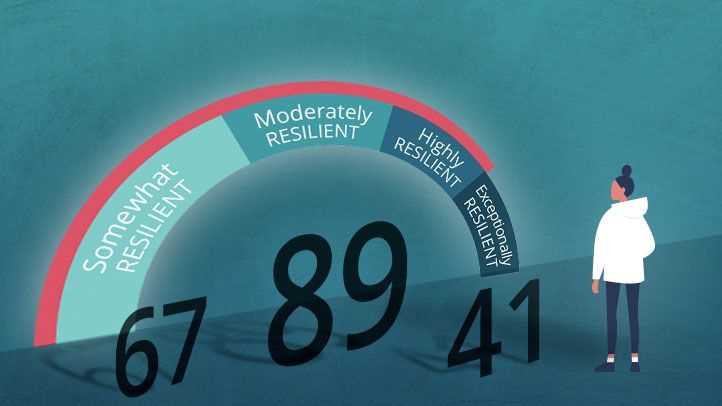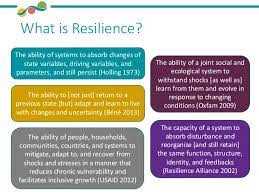
What is low resilience?
Low resilience refers to the inability to bounce back or recover from challenging situations or setbacks. It is a state of emotional and mental vulnerability, where individuals struggle to cope with stress, adversity, or change. Low resilience can manifest in various aspects of life, including relationships, work, and personal well-being.
Causes of low resilience
There are several factors that contribute to low resilience. Childhood experiences, such as trauma or neglect, can have a lasting impact on a person’s ability to handle stress. Additionally, genetics and temperament play a role in determining one’s resilience level. Environmental factors, such as a lack of support systems or exposure to ongoing stressors, can also contribute to low resilience.
Symptoms of low resilience
Low resilience can manifest in different ways. Individuals with low resilience may experience heightened levels of anxiety, depression, or chronic stress. They may have difficulty adapting to change, often feeling overwhelmed or stuck in negative thought patterns. Low self-esteem and a lack of confidence are also common symptoms of low resilience.
Solutions for low resilience
Building resilience is a gradual process that requires self-reflection and intentional effort. Developing a strong support system, including friends, family, or a therapist, can provide the necessary emotional support. Engaging in activities that promote self-care, such as exercise, meditation, or hobbies, can help manage stress and improve resilience. Additionally, learning and practicing effective coping mechanisms, such as problem-solving and positive thinking, can enhance one’s ability to bounce back from adversity.
Causes of Low Resilience
Low resilience can be caused by a variety of factors. Understanding what contributes to low resilience is important in order to address and overcome it. Here are some common causes of low resilience:
- Chronic stress: High levels of chronic stress can deplete an individual’s resilience over time. When faced with ongoing stressors, the body and mind may struggle to bounce back and recover, leading to a decreased ability to handle future challenges.
- Lack of social support: A strong support network is crucial for building resilience. Without a network of trusted friends, family, or colleagues, individuals may feel isolated and struggle to cope with adversity.
- Unhealthy coping mechanisms: Engaging in unhealthy coping mechanisms, such as substance abuse or excessive use of technology, can hinder resilience. These behaviors may provide temporary relief but ultimately prevent individuals from developing healthy strategies to manage stress and overcome obstacles.
- Perfectionism: The constant pursuit of perfection can lead to increased stress and anxiety. Individuals who strive for perfection often struggle to accept failure or setbacks, which can undermine their resilience.
- Negative thinking patterns: Pessimism and negative self-talk can erode resilience. When individuals consistently focus on the worst possible outcomes or doubt their abilities, they may feel overwhelmed and unable to effectively navigate challenges.
It is important to note that low resilience is not a permanent state and can be improved with awareness and effort. By addressing the underlying causes and implementing strategies to enhance resilience, individuals can build the capacity to bounce back from adversity and thrive.
Chronic stress and trauma

Chronic stress and trauma are two significant factors that contribute to low resilience.
Stress is a natural response to challenges or threats, but when it becomes chronic, it can have detrimental effects on both physical and mental health. Chronic stress occurs when individuals experience prolonged periods of stress without relief or relaxation. This can be caused by various factors such as work pressure, financial problems, relationship issues, or health problems.
When individuals are exposed to chronic stress, their bodies release stress hormones like cortisol, which can have a negative impact on the immune system, cardiovascular system, and brain function. Over time, chronic stress can lead to symptoms such as fatigue, irritability, difficulty concentrating, and sleep problems. It can also increase the risk of developing mental health disorders like anxiety and depression.
Trauma, on the other hand, refers to an event or series of events that are emotionally or physically distressing and can have long-lasting effects on an individual’s well-being. Traumatic experiences can include physical or sexual abuse, natural disasters, accidents, or witnessing violence.
When individuals experience trauma, their brains and bodies go into a state of high alert, activating the fight-or-flight response. This response is essential for survival in the short term, but when trauma is chronic or unresolved, it can lead to a state of hypervigilance and hyperarousal, making it difficult for individuals to feel safe and secure.
Chronic stress and trauma can have a significant impact on an individual’s resilience. They can deplete energy resources, impair cognitive function, and weaken coping mechanisms. It is important to address chronic stress and trauma through therapy, self-care practices, and support systems to build and maintain resilience.
Lack of social support

One of the key factors that can contribute to low resilience is a lack of social support. Resilience, by definition, is the ability to bounce back from difficult situations and adapt to change. However, when individuals lack a strong support system, it can be much more challenging to navigate through life’s challenges.
Social support can come in many forms, including emotional support, practical assistance, and a sense of belonging. When individuals have a network of friends, family, or community members who they can turn to during tough times, it can significantly increase their resilience.
When someone is going through a difficult period, having someone to talk to and lean on can provide a sense of comfort and validation. It allows individuals to share their thoughts and feelings, which can help them gain perspective and find solutions to their problems. Additionally, social support can offer practical assistance, such as helping with daily tasks or providing financial aid, which can alleviate some of the stressors that contribute to low resilience.
A lack of social support can also lead to feelings of isolation and loneliness, which can further exacerbate low resilience. When individuals feel isolated, they may struggle to find motivation or seek help when they need it. This can create a cycle of low resilience, as individuals may feel overwhelmed and unable to cope with challenges on their own.
Building a strong support system is crucial for increasing resilience. This can involve reaching out to friends and family, joining community groups or organizations, or seeking professional help when needed. By actively seeking social support, individuals can strengthen their resilience and improve their ability to bounce back from adversity.
| Causes of Low Resilience | Symptoms of Low Resilience | Solutions for Low Resilience |
|---|---|---|
| High levels of stress | Difficulty coping with challenges | Developing healthy coping mechanisms |
| Previous traumatic experiences | Feelings of hopelessness and helplessness | Seeking therapy or counseling |
| Lack of social support | Low self-esteem and self-confidence | Building a strong support system |
Negative thinking patterns

Low resilience is often associated with negative thinking patterns. When faced with challenges or setbacks, individuals with low resilience tend to engage in negative self-talk and focus on their weaknesses or failures. This negative thinking can further decrease their resilience and make it difficult for them to bounce back from adversity.
Common negative thinking patterns include:
- Black-and-white thinking: Seeing situations as either completely good or completely bad, without considering any gray areas or alternative perspectives.
- Overgeneralization: Drawing broad conclusions based on a single negative event, assuming that one failure means that all future attempts will also fail.
- Mental filtering: Focusing only on the negative aspects of a situation and filtering out any positive aspects.
- Catastrophizing: Magnifying the importance or severity of a negative event, imagining the worst-case scenario, and anticipating negative outcomes.
- Personalization: Taking personal responsibility for negative events or situations that are beyond one’s control, and blaming oneself for things that are not their fault.
Recognizing these negative thinking patterns is an important step towards building resilience. By challenging and reframing these thoughts, individuals can develop a more positive and resilient mindset. This can involve seeking support from others, practicing self-compassion, and focusing on strengths and past successes.
Symptoms of Low Resilience
Resilience is the ability to bounce back from difficult situations and adapt to change. When a person lacks resilience, they may experience a range of symptoms that can impact their physical and mental well-being. Here are some common symptoms of low resilience:
1. Emotional instability: Individuals with low resilience may find it difficult to regulate their emotions. They may experience frequent mood swings, feel overwhelmed by stress, and have difficulty coping with setbacks.
2. Physical symptoms: Low resilience can manifest in physical symptoms such as headaches, muscle tension, and stomachaches. The body’s response to stress can be heightened, leading to increased vulnerability to illness and fatigue.
3. Lack of motivation: People with low resilience may struggle to find motivation and may feel unmotivated to take on new challenges or pursue their goals. They may also have difficulty bouncing back after setbacks or failures.
4. Difficulty in problem-solving: Low resilience can hinder a person’s ability to problem-solve effectively. They may struggle to find solutions to challenges and may feel overwhelmed by even minor obstacles.
5. Social withdrawal: Individuals with low resilience may isolate themselves from others, avoiding social interactions and support systems. They may feel overwhelmed by social situations and find it difficult to connect with others on an emotional level.
6. Increased anxiety and stress: Low resilience can contribute to higher levels of anxiety and stress. Individuals may constantly worry about future events, have difficulty relaxing, and feel overwhelmed by everyday tasks.
7. Decreased self-esteem: Low resilience can impact a person’s self-esteem and self-worth. They may doubt their abilities, feel inadequate, and have a negative self-image.
If you or someone you know is experiencing these symptoms, it may be helpful to seek support from a mental health professional. Building resilience is possible through various techniques and therapies.

I am Patrina de Silva, a psychologist and mental health blogger in Sri Lanka. After obtaining psychology degrees from the University of Colombo and Monash University, I returned home to work as a counselor while also starting the popular blog “Pressy but Happy” to provide advice on psychological issues. Over the past decade, my empathetic articles have made my blog a leading mental health resource in the country. In addition to writing, I maintain a private therapy practice, frequently volunteer counseling time, and conduct seminars, driven by my passion for destigmatizing mental illness and educating the public on the mind-body connection. I strive to be an influential voice in my field through my compassionate approach.
